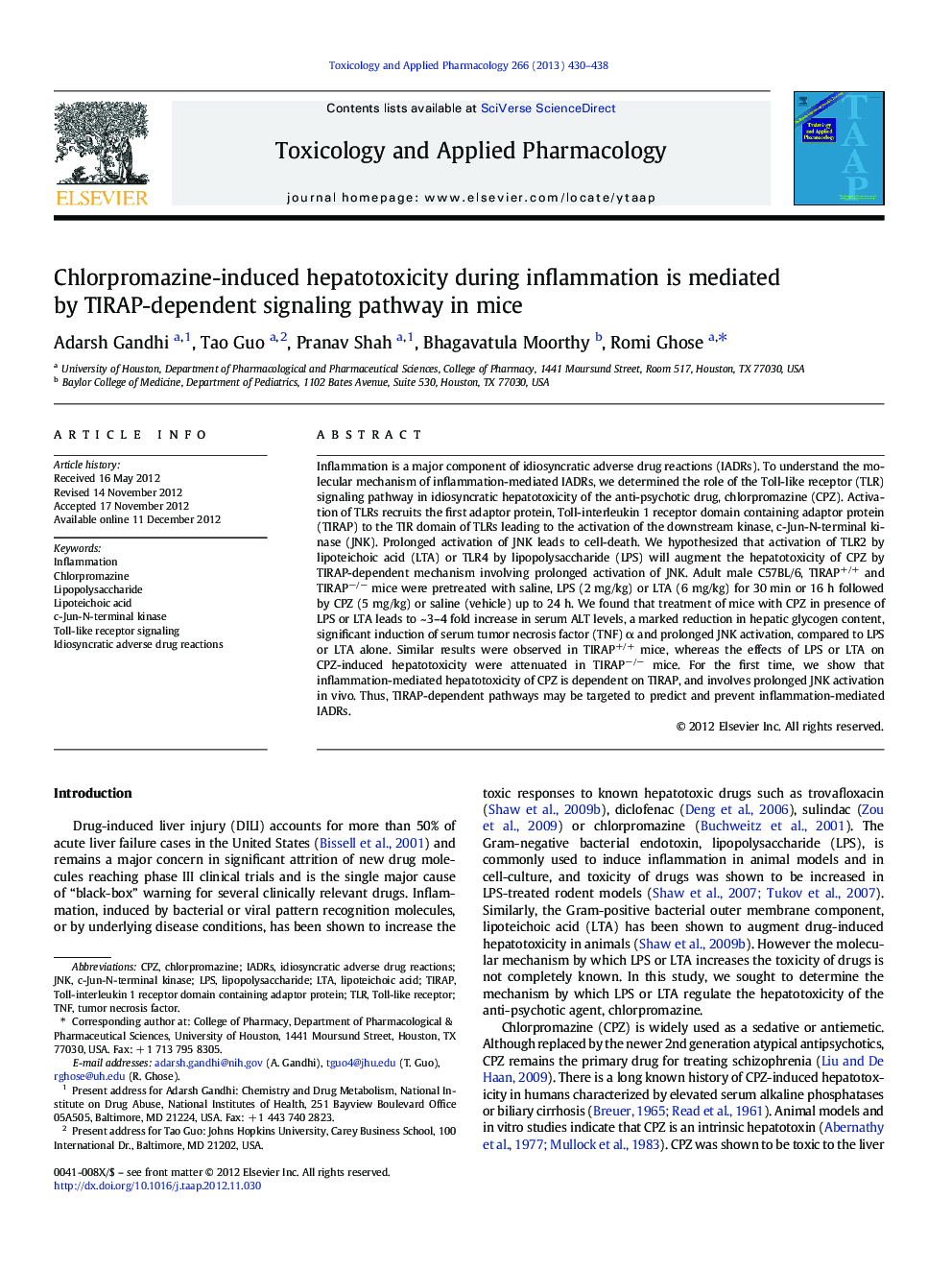| Article ID | Journal | Published Year | Pages | File Type |
|---|---|---|---|---|
| 2569326 | Toxicology and Applied Pharmacology | 2013 | 9 Pages |
Inflammation is a major component of idiosyncratic adverse drug reactions (IADRs). To understand the molecular mechanism of inflammation-mediated IADRs, we determined the role of the Toll-like receptor (TLR) signaling pathway in idiosyncratic hepatotoxicity of the anti-psychotic drug, chlorpromazine (CPZ). Activation of TLRs recruits the first adaptor protein, Toll-interleukin 1 receptor domain containing adaptor protein (TIRAP) to the TIR domain of TLRs leading to the activation of the downstream kinase, c-Jun-N-terminal kinase (JNK). Prolonged activation of JNK leads to cell-death. We hypothesized that activation of TLR2 by lipoteichoic acid (LTA) or TLR4 by lipopolysaccharide (LPS) will augment the hepatotoxicity of CPZ by TIRAP-dependent mechanism involving prolonged activation of JNK. Adult male C57BL/6, TIRAP+/+ and TIRAP−/− mice were pretreated with saline, LPS (2 mg/kg) or LTA (6 mg/kg) for 30 min or 16 h followed by CPZ (5 mg/kg) or saline (vehicle) up to 24 h. We found that treatment of mice with CPZ in presence of LPS or LTA leads to ~ 3–4 fold increase in serum ALT levels, a marked reduction in hepatic glycogen content, significant induction of serum tumor necrosis factor (TNF) α and prolonged JNK activation, compared to LPS or LTA alone. Similar results were observed in TIRAP+/+ mice, whereas the effects of LPS or LTA on CPZ-induced hepatotoxicity were attenuated in TIRAP−/− mice. For the first time, we show that inflammation-mediated hepatotoxicity of CPZ is dependent on TIRAP, and involves prolonged JNK activation in vivo. Thus, TIRAP-dependent pathways may be targeted to predict and prevent inflammation-mediated IADRs.
► Inflammation augments the toxicity of an idiosyncratic hepatotoxin chlorpromazine. ► Activation of Toll-like receptors by LPS or LTA induces chlorpromazine toxicity. ► Sustained stress kinase (JNK) activation is associated with chlorpromazine toxicity. ► These studies provide novel mechanistic insights into idiosyncratic hepatotoxicity.
